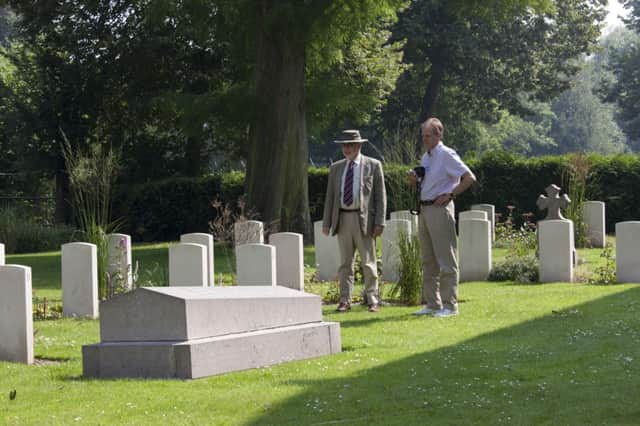Book tells the stories of south Warwickshire WW1 heroes


Sir Andrew Hamilton, from Walton near Wellesbourne, recently launched Stolen Lives at an event in Newbold Pacey, along with Warwick war historian Alan Reed, with whom he worked on the book.
As well as including details of several well-known figures who were killed in the 1914-1918 conflict - such as Raymond Asquith, son of the Prime Minister, and Rudyard Kipling’s son Jack - the book includes the stories of some local men who died in action.
Advertisement
Hide AdAdvertisement
Hide AdAmong them is Ashorne teenager Howard Avenel Bligh St George – known as ‘Ave’ to most - who had been a keen sportsman. Aged 19, he was sent to Belgium in October 1914 and at the time, wrote to his family: “Words can’t describe the hell it is”; ”the worst part of it all is the ghastly sight of wounded men”; and of the guns’ “continuous roar, all day and sometimes night”. A month later he was shot dead by a sniper in Ypres. His mother Evelyn commemorated Ave by erecting a plaque and stained glass window in Newbold Pacey church.


Another promising sportsman was Warwickshire cricketer Percy Jeeves, who, it is reported, once caught the eye during a county match of celebrated writer PG Wodehouse. Three years later when casting around for a name for Bertie Wooster’s valet, the cricketer’s surname came to mind. Jeeves joined the 15/Royal Warwicks (2nd Birmingham) soon after the outbreak of the war. Soon after the Battle of the Somme in 1916, which he survived, his Battalion was ordered to attack the Germans at High Wood. He was listed as one of 461 cricketers killed in action on that day.
Also included is former Stratfor Grammar School pupil Captain Geoffrey Donaldson, a young botanist and Cambridge graduate who joined the 2/7 Royal Warwicks and became a captain. Hamilton has picked out some of his letters in which he displays a good sense of humour. In one, he avoids potential censoring by writing: “We have had some narrow escapes. One sergeant-major lost his arm and I have lost my mess-tin”. He was killed in action in the Battle of Fromelles in July 1916.
Stolen Lives by Sir Andrew Hamilton is now available in book shops and online.